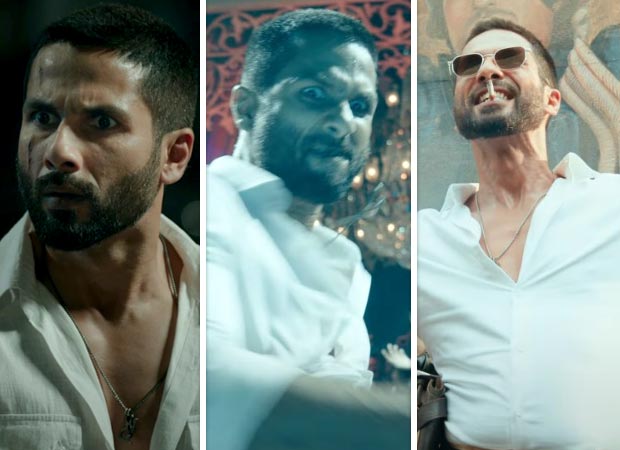At the forefront of this resurgence is Kangana Ranaut’s Emergency, a film that revisits one of the darkest chapters in Indian political history—the Emergency of 1975. This period, declared by then-Prime Minister Indira Gandhi, lasted for 21 months, and saw the suspension of civil liberties, censorship of the press, and imprisonment of political opponents. The Emergency remains a deeply controversial and hotly debated topic in India’s political discourse, and Ranaut’s film aims to delve into the complexities of this period.
IMTIAZ ALI gets candid on CHAMKILA: Success is becoming a much better filmmaker
Revisiting History
Ranaut, known for her fearless choices both on and off-screen, not only stars as Indira Gandhi, but also directs the film. Her portrayal of the former Prime Minister is expected to explore the nuanced persona of a leader who is both revered and reviled. This film marks an important moment in Bollywood’s growing trend of politically charged narratives, offering a cinematic window into the turbulent period of authoritarian rule that defined the Emergency. Talking about her reason to back a film like Emergency, Kangana in a conversation with Bollywood Hungama said, “As I have always said, whether it’s Indira Gandhi or any other woman, I have a lot of empathy for women. I cannot fake this and I also have respect for women in my heart, so I have done a lot of work for them. I have made a film based on the entire life of Indira Gandhi, and when you are an artist, everything serves as inspiration. Keeping those sentiments in mind, I made that film. So, when it comes out, I think everyone will like it. They should watch it as an entertainment film.” She went on to continue, “The incidents that occurred with our constitution, the reasons behind those incidents, the focus should be on those reasons so that in the future, there is no tampering with our constitution. A leader’s credibility, deeply hidden security, insecurity, strength, or weakness – are all factors to be considered so that in the future, there is no interference with our constitution. That’s why I made this film.”
While Emergency revisits the political sphere, Akshay Kumar’s Sky Force shifts the focus to military heroism. Based on the true story of India’s only Param Vir Chakra recipient who was awarded posthumously, the film honors the bravery and sacrifice of the Indian armed forces. The Param Vir Chakra is India’s highest military honor, awarded for acts of extraordinary valor in the face of the enemy. The film will serve as a powerful tribute to the countless men and women in uniform who have made the ultimate sacrifice for their country. Akshay Kumar, who has become synonymous with patriotic and socially relevant cinema, leads the cast in this emotionally charged film.
Srikanth: Rajkummar Rao on MIND-BLOWING Transformation, Character Challenges & Plastic Surgery
Delving into political realities
Another film that tackles recent political developments is Yami Gautam’s Article 370, which explores the abrogation of Article 370 from the Indian Constitution. This article had granted special status to the region of Jammu and Kashmir, and its removal in August 2019 was a watershed moment in Indian politics. The decision to abrogate Article 370 sparked widespread debate across the country and around the world, with opinions divided on its implications for national unity and regional identity.
Article 370 delved into the political, social, and personal ramifications of this decision. Yami Gautam, known for her strong performances, takes on the lead role in a film that promises to be a thought-provoking exploration of one of the most contentious issues in contemporary India. Through this narrative, filmmakers are engaging with the political realities of the country in a way that resonates with audiences, bringing to light the complexities of governance, law, and regional dynamics in modern India.
Meanwhile, Randeep Hooda’s Swatantrya Veer Savarkar delves into the legacy of one of India’s most controversial freedom fighters, Vinayak Damodar Savarkar. Savarkar played a crucial role in India’s struggle for independence, yet his legacy remains a complex one, with his association with Hindutva ideology often sparking debate. Hooda, known for his intense and transformative performances, takes on the challenging role of Savarkar, navigating the complexities of a leader who continues to evoke strong opinions.
Randeep Hooda Battles for Savarkar | Opens up on Controversies, Meitei Wedding, Indian Diplomacy
Sports biopics
Ajay Devgn’s Maidaan takes a different approach, focusing on a forgotten chapter in Indian football. The film tells the story of Syed Abdul Rahim, the coach who led the Indian national football team to unprecedented success in the 1950s and 1960s. Often referred to as the architect of modern Indian football, Rahim’s contributions to the sport have largely been overlooked. It is a tribute to a man who believed in the potential of Indian football and worked tirelessly to put the country on the global football map.
With this there was also another sports drama; Chandu Champion. This Kartik Aaryan starrer was based on the life of India’s first paralympic gold medallist Murlikant Petkar, the film performed decently at the box office. Sushant Singh Rajput was earlier supposed to play the role with a different set of producer and director.
Director Amit Ravendranath Sharma in an interview with Telegraph shared his reason to make Maidaan, he said, “ I had no idea about Syed Abdul Rahim. One day Boney Kapoor called me and told me about the idea of making a film on Rahim Saab. When I heard it, I couldn’t believe it was a true story. Nobody knew the story of Rahim Saab, his team, and the golden time of football. At that very moment, I agreed to make the film.”
Real-life tales
Amidst all these sports and military heroes, we also got to see stories of common folks who added a new meaning to their life and improved the lives of many others. One of them was Junaid Khan’s Maharaj which spoke about the very famous 1862 Libel Case between Jadunathjee Brajratanjee Maharaj, and Karsandas Mulji questioning social practices. And the other being Rajkummar Rao’s Srikanth based on the life of visually challenged MIT educated businessman Srikanth Bolla, the film went on to earn Rs 50 crore at the box office. And with this there was also Imtiaz Ali’sAmar Singh Chamkila with Diljit Dosanjh and Parineeti Chopra. The film gave a glimpse into the life of the controversial singer leading up to his assassination. Talking about how the film got made, Imtiaz Ali said , “ I’m lucky that this story, which a lot of people have wanted to make before me, finally came to us. That I could make it, is also a blessing. A lot of my friends, other film directors, for many years have tried to make this story. Harpreet from Punjab was the first one who managed to get the rights for a film on Chamkila. Sitting in Punjab he thought about who should make the film and thought about me. I asked him later, ‘Why did you think of me?’ He said, ‘You’ve made a ‘Rockstar’, which has good music’. Secondly, he said, ‘Punjab is authentic in your films’. He also wanted to make the film in Hindi as he felt that people already knew Chamkila in Punjab, and it was a larger story than just a regional story. He wanted it to be at least national and perhaps international. So there is the destiny of Chamkila.”
A growing trend
This resurgence of real-life stories in Hindi cinema reflects a growing appetite among audiences for films that engage with the country’s history and the lives of its extraordinary individuals.As Bollywood continues to explore real-life stories, this trend serves as a powerful reminder of the impact that history and individual actions can have on shaping the future. These films offer more than just entertainment; they provide a cinematic exploration of India’s past and present, contributing to a deeper understanding of the nation’s identity and aspirations.
—







